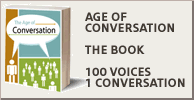
Influx got the chance to question one of the founder of Dotherightthing, Ryan Mickle, this is part one of the inteview.
1. Briefly describe your background
My background is in management consulting, a perfect fit for someone who enjoys solving problems and leading people, but I have always known that entrepreneurship was my calling. I aspired to solve big problems or, rather, create big solutions. My educational background is in economics, which I was lucky enough to have the opportunity to study at the University of California at Berkeley. What interested me most about economics, however, was not that which people commonly associate with the subject, but was instead one of its broader uses, the study of decisions and influence, in a social context.
2. Where did the idea for dotherightthing.com come from?
There are countless ways in which the financial performance of companies is measured and tracked. We have EPS, PE, FPE, quarterly earnings reports, etc., yet companies impact the world in more ways than can be reflected by measures of financial performance. Rod Ebrahimi and I set out to create a way using which the non-financial measures of performance could be tracked-a "market" for companies' social performance-in order to recognize high social-performing companies. Studies are already revealing that consumers are actively seeking out information about companies' social responsibility and environmental impacts. Yet, existing rankings of companies, based on their impacts on society, according to a recent article in The Harvard Business Review, amount to a "cacophony of self-appointed scorekeepers" that make up a "jumble of largely meaningless rankings, allowing almost any company to boast that it meets some measure of social responsibility." Dotherightthing simply puts all of this information in one place and lets consumers do the ranking of companies, using the information the community supplies.
3. Why do you think the environment is right for the idea- what is it that's placing brands and corporations under the microscope?
In his book, A Whole New Mind, Daniel Pink wrote about the material abundance in which we live. We have countless choices in every purchase decision we make. Our basic needs can be satisfied by thousands of options. Want a t-shirt? Pick from millions of designs, colors, and materials combinations. Want a cell phone? Again, we are faced with an overwhelming array of options. In the book, Pink concludes that companies will be force to appeal to our emotional senses by pouring money into the design of their products. When we buy plungers for our toilets, according to his argument, consumers will buy the option that is most aesthetically pleasing-the plunger that matches our interior d�cor, our personal styles, etc. Pink was almost right. As people are faced with this abundance of choices, they are making purchasing decisions based on emotion. However, consumers are buying what makes them feel good, from a completely nonmaterial sense.
Secondly, consumers are more informed today than ever before. Videos can be spread virally to millions of viewers with one click. Information, music, breaking news, and anything worth spreading can be shared with a small group of people, at first, yet end up in the hands of more people than those who watch American Idol. The internet has created a near-frictionless environment in which ideas and information can spread at unthinkable speeds and it is creating transparency in businesses, whether they are ready for it or not.
Lastly, to a highly-educated, self-actualized society, it just makes sense to consider the non-financial implications of the activities of a business, as opposed to operating at the minimum required by law. It can save money-companies like Wal-Mart will save millions by installing solar panels to power their stores. It makes sense (financially and non-financially) to design efficient buildings, which leverage smarter designs to collect natural light and use energy efficiently. When Timberland switched to water-based, non-toxic glues, in an effort to create more environmentally friendly shoes, they quickly realized that employees in manufacturing lines also benefit, by getting to work unconstrained by attire and equipment required to handle the previously used toxic chemicals. By aiming to create both social and financial value, companies are creating workplaces in which employees are passionate about their work, boosting retention and earning them international recognition. Doing the right thing makes business sense.
It appears you don't have Flash installed.

Ryan, I am excited for you that you already know the pleasure of discovering your "whole mind," which is not new for you. You were showing it when you were just a little boy. Daniel Pink articulated some of the values, breadth and depth. Somebody needs to reflect for us. Isn't it a delight to be you?